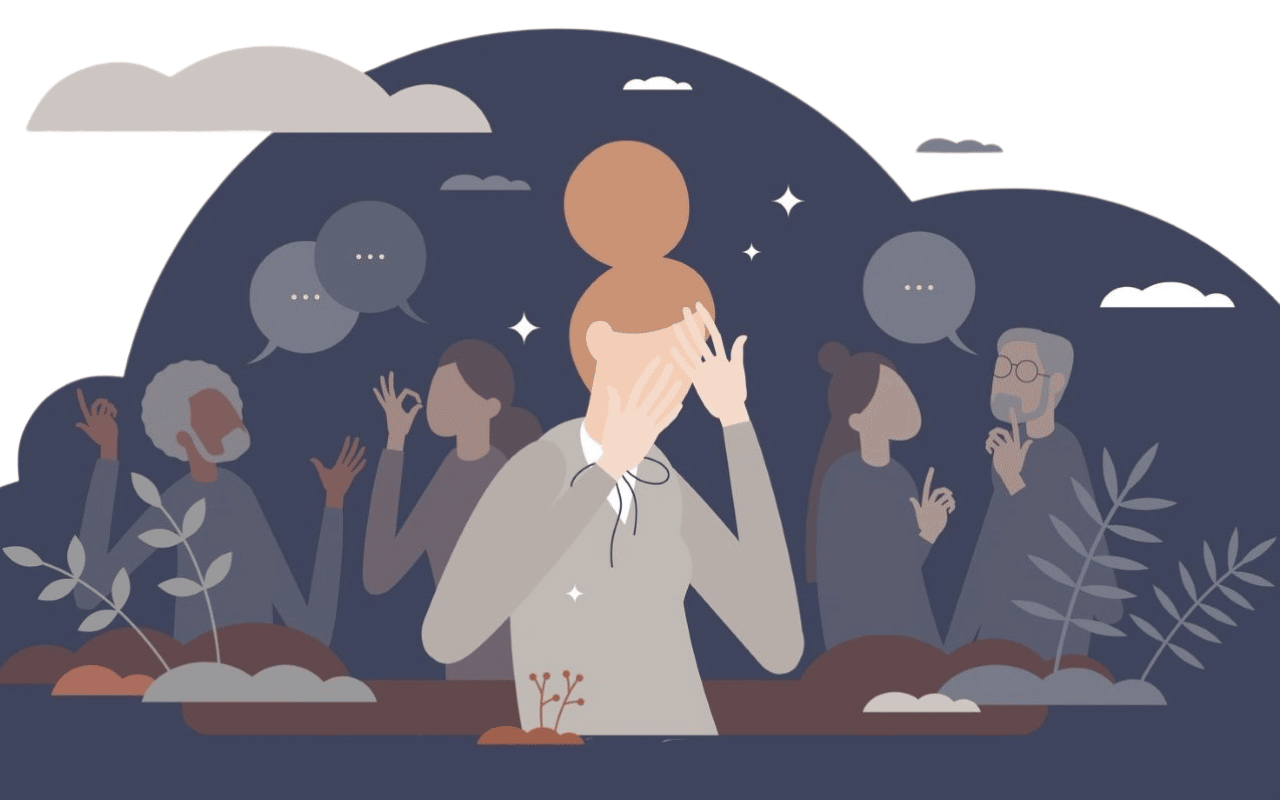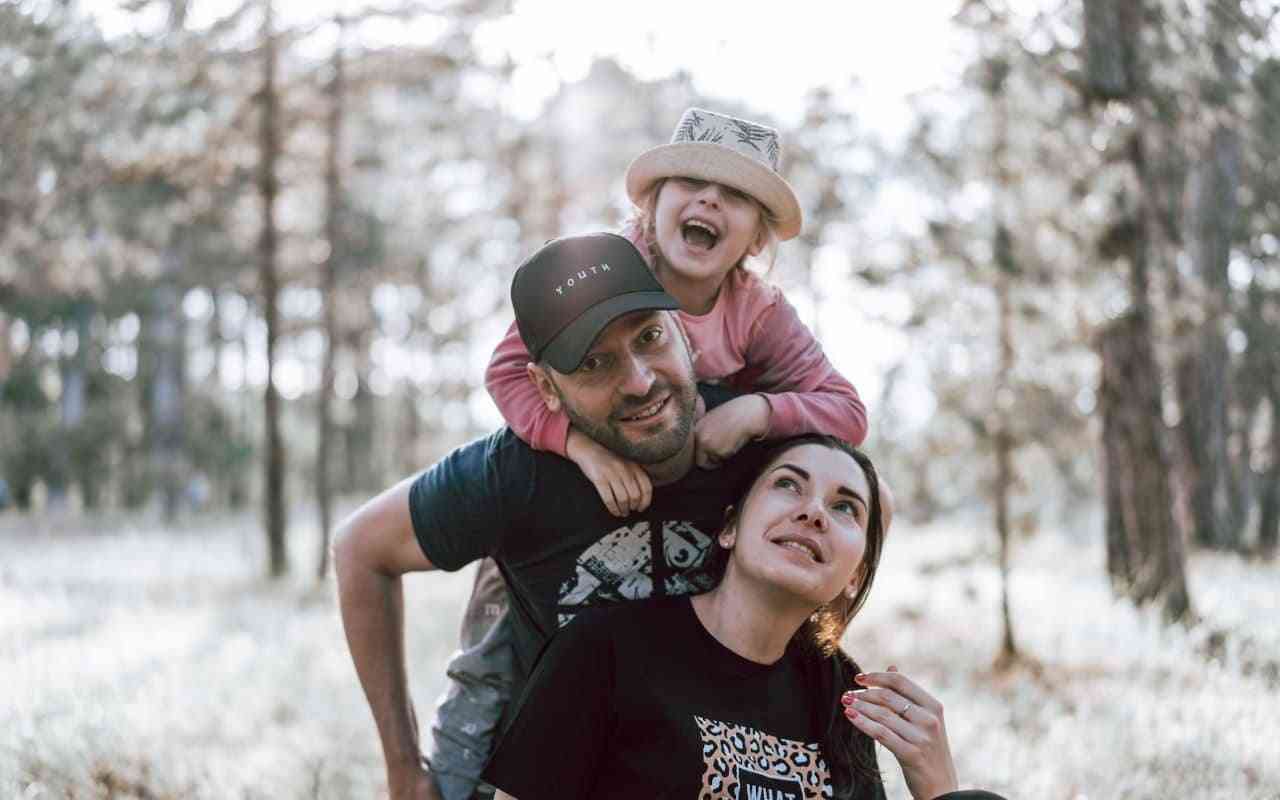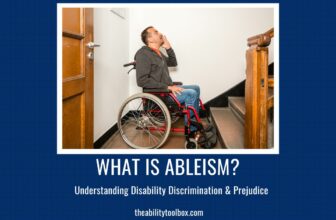
If you struggle with social anxiety, developing these three communication skills can help you navigate both everyday and challenging conversations and situations with greater ease.
Here's the problem I have with most books on communication and social skills.
They give good advice. But….
When you have social anxiety, it can be impossible to communicate clearly, let alone persuasively.
Forget about verbal jiu-jitsu — for instance, creative conversation starters — when stringing together words is challenging enough!
I've had social anxiety for the last two decades or so, and I've come to realize which communication skills are more important than others for socially anxious people like me.
Here are three communication skills for people with social anxiety that I find incredibly helpful:
Social Anxiety Communication Skill #1: Practice mindfulness.
Wait, mindfulness? How is it a communication skill? Let me explain:
In a study, researchers found that mindfulness predicted empathy and even active listening. If you're more aware and accepting of how you feel and think, you'll be more likely to be able to do the same for someone else. Put in another way… how you connect with yourself is how you connect with others.
Here's a simple way to be more mindful in conversation: notice how you breathe. How does your body move as you breathe? How does your voice change with each breath? By expanding your attention to the rhythms of your breathing, you'll be less focused on your social fears.
To understand the science of breathing and meditation, check out Dr. Huberman's explainer. And if you'd like to explore mindfulness further, I highly recommend Radical Acceptance by Tara Brach.
Social Anxiety Communication Skill #2: Set boundaries to stop unhealthy levels of people-pleasing.
When you're socially anxious, it's easy to default to pleasing people and being “nice.” Why risk offending others by sharing what you want or don't? As Dr. Aziz Gazipura, a therapist, wrote in Not Nice:
“[Being nice] comes out of a fear of displeasing others and receiving their disapproval. It’s driven by fear, not virtue.”
The problem with people-pleasing, of course, is you end up neglecting your own needs. That's certainly not the formula for a fulfilling life!
So how do you start setting boundaries to protect your needs? Do these two things first:
- Honor yourself: Your needs are just as valuable as someone else, and that's what you should attend to first and foremost. My favorite metaphor for this: to help others, put your oxygen mask first.
- Accept that you'll disappoint others: Meeting your own needs might mean that you let someone down. And that's OK! After all, you are different people and have different realities — this is known as differentiation in psychology.
I learned these from Dr. Gazipura's other book, The Solution To Social Anxiety (one of my all-time favorites!)
Related article: 12 Self-Advocacy Skills for Adults With a Disability or Chronic Illness
Social Anxiety Communication Skill #3: Ask questions during conversations.
While I truly believe in the importance of being mindful and setting boundaries, the reality is that these skills take time to develop. If you want to quickly improve your communication, start by asking questions.
And here's even better news: you don't need to know the best questions on earth. All you have to do is this: follow up on what the other person is saying. Alison Wood Brooks, a Harvard Business School professor, did multiple studies on the art of asking questions, and here's what she said:
“…follow-up questions seem to have special power. They signal to your conversation partner that you are listening, care, and want to know more. People interacting with a partner who asks lots of follow-up questions tend to feel respected and heard.”
To follow up thoughtfully, listen to find out what the other person seems interested in, and encourage them to elaborate. Signs of interest include repetition of the same topic and/or an unusually high energy when talking about something.
What are some communication skills that have helped you with social anxiety?
Share your experiences with our safe and supportive self-help community in the comments.
Image via VectorMine on Deposit Photos.
Founder of Deeper Conversations. Write about sparking and deepening relationships. Interviewed 700+strangers to overcome anxiety, featured by Inc. Magazine, CBC, TEDx.
Dr. Wilson graduated from Rosalind Franklin University of Medicine and Science and completed her residency in Internal Medicine at Advocate Good Shepherd Hospital in Barrington, IL. Dr. Wilson specializes in providing culturally competent and trauma-informed care to patients with physical disabilities. In addition to her private practice, she works as a science communicator, teaching health literacy to middle school and high school students in her local school district.








